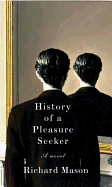 In the final session of the day, USA Today's Bob Minzesheimer got right into matters with Douglas Brinkley, author of The Great Deluge: Hurricane Katrina, New Orleans and the Mississippi Gulf Coast (Morrow, 2006), by asking what he would include if he were updating the book.
In the final session of the day, USA Today's Bob Minzesheimer got right into matters with Douglas Brinkley, author of The Great Deluge: Hurricane Katrina, New Orleans and the Mississippi Gulf Coast (Morrow, 2006), by asking what he would include if he were updating the book.
"I sure wish I knew the Saints were going to win the Superbowl," he answered. Brinkley, who was living in New Orleans with his wife and young children when Katrina hit, managed to get his family to higher ground, then returned to the city to help--even if he had no "real skills." Now, nearly seven years later, the Superdome is restored and bears the emblem of Mercedes Benz. While Brinkley sees that as a testament to this city's resilience, he knows it does not tell the whole story, and does not illuminate the real danger of "Lego levees from the 1960s" still in place and the endangered wetlands that have not been addressed.
In his book, he focuses his keen historian's eye on the extraordinary everyday people who stepped up while the police stood by. He felt compelled to write about what really happened in the week after the storm. "George W. Bush finally decided to do a fly-over," said Brinkley, who is now a professor at Rice University in Texas, but still has family ties to New Orleans. "I do presidential history 101: get your butt on the ground." Doing his best LBJ, Brinkley said Gulf Coast residents still remembered how Lyndon Johnson showed up in 1965 after Hurricane Betsy, got on a bullhorn, and said: "This is your president and I am here."
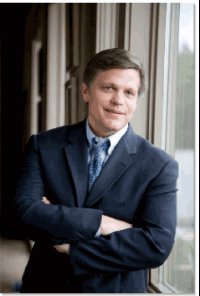 "There is a plethora of Hurricane Katrina heroes," he said. "But the politicians"--he calls them "cowards" in his book--"I wouldn't change a word about what I wrote about any of those people."
"There is a plethora of Hurricane Katrina heroes," he said. "But the politicians"--he calls them "cowards" in his book--"I wouldn't change a word about what I wrote about any of those people."
Moving along, Minzesheimer asked how, as a historian, Brinkley sees the role of books.
"If I can be a booster here," Brinkley applauded the rich canon of books by historians and journalists. But he is concerned that publishers hold back on advances for historical works of merit in favor of celebrity books."
And Minzesheimer asked: "How do you see the role of localism in a society increasingly homogenized?"
"I think we have a new localism," responded Brinkley, who recently '"trashed" Amazon at an event at Washington University (a comment that brought ready applause). "You are not just a local bookstore, you are a place to meet," he told the audience. He saw firsthand the vital role the Garden District Bookshop and Octavia Books--and other local merchants--played in post-Katrina New Orleans.
"I can't stand e-books," said Brinkley, who worked his way through college at Afterwords Café and Second Story Books in Washington, D.C. "When I go to somebody's house, I go right to their bookshelves--as I am sure you do--to see what books they have. I don't want to look at their laptop."
Brinkley, who wanted to be a historian since he created his own encyclopedia in the sixth grade, is putting the finishing touches on his biography of Walter Cronkite, coming from Harper in May. --Bridget Kinsella
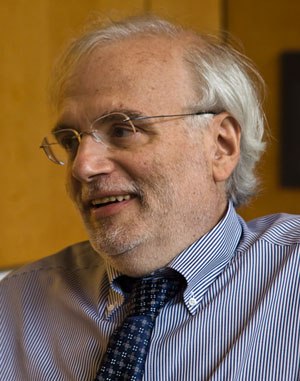 "One thing that we all observed was how often customers told us they were choosing to shop with us to support an independent bookstore and local business. While we often receive comments like these, the staff was struck by their frequency and the apparent conviction behind them....
"One thing that we all observed was how often customers told us they were choosing to shop with us to support an independent bookstore and local business. While we often receive comments like these, the staff was struck by their frequency and the apparent conviction behind them....





 Leading off with a humorous story about a butcher whose talented dog could navigate the complicated human world on its own--but the butcher was disappointed the pooch kept forgetting its house keys--Skip Prichard, president and CEO, Ingram Content Group, asked bookseller attendees to lower their expectations for his comments.
Leading off with a humorous story about a butcher whose talented dog could navigate the complicated human world on its own--but the butcher was disappointed the pooch kept forgetting its house keys--Skip Prichard, president and CEO, Ingram Content Group, asked bookseller attendees to lower their expectations for his comments. 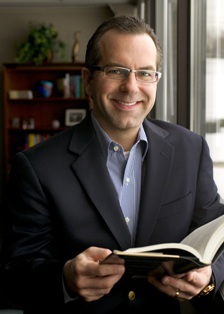 Prichard said he was there to listen and to facilitate. With this in mind, he offered what he called the "five if's to help change perspective." First, he proposed: "If selling books is your purpose, your store will fail." He pointed to a company that consistently turned its creative ideas into communications breakthroughs for a quarter century. This company, Prichard continued, invented grammar checkers, electronic dictionaries and even early PDAs--and still failed.
Prichard said he was there to listen and to facilitate. With this in mind, he offered what he called the "five if's to help change perspective." First, he proposed: "If selling books is your purpose, your store will fail." He pointed to a company that consistently turned its creative ideas into communications breakthroughs for a quarter century. This company, Prichard continued, invented grammar checkers, electronic dictionaries and even early PDAs--and still failed. 
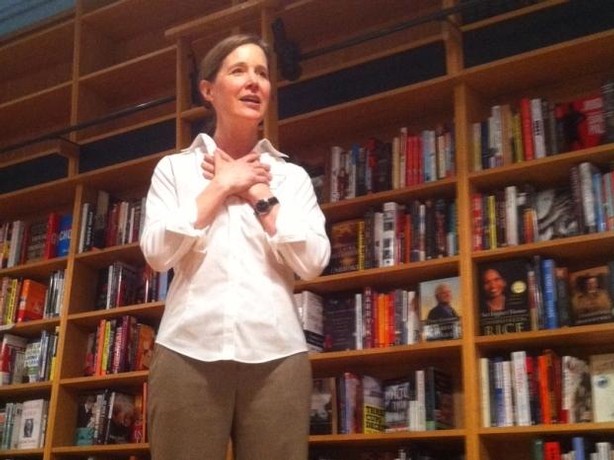 By the time she went on the road for the paperback edition of Bel Canto, her tour was different: the book sold and people came to her events. "What a revelation it was to see human beings come into bookstores to buy my books!" she said.
By the time she went on the road for the paperback edition of Bel Canto, her tour was different: the book sold and people came to her events. "What a revelation it was to see human beings come into bookstores to buy my books!" she said.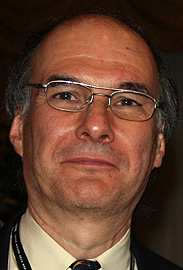 But 2011 turned out to be "the best year many of you had," Teicher said. After a difficult first quarter, sales began to pick up, especially after Borders finally closed, so that by the week of Thanksgiving, sales at indies, as measured by BookScan, rose 15% and were up every week following that, and Google e-book sales constituted 5.2% of total e-commerce sales at IndieCommerce bookstores.
But 2011 turned out to be "the best year many of you had," Teicher said. After a difficult first quarter, sales began to pick up, especially after Borders finally closed, so that by the week of Thanksgiving, sales at indies, as measured by BookScan, rose 15% and were up every week following that, and Google e-book sales constituted 5.2% of total e-commerce sales at IndieCommerce bookstores.  "There is a plethora of Hurricane Katrina heroes," he said. "But the politicians"--he calls them "cowards" in his book--"I wouldn't change a word about what I wrote about any of those people."
"There is a plethora of Hurricane Katrina heroes," he said. "But the politicians"--he calls them "cowards" in his book--"I wouldn't change a word about what I wrote about any of those people."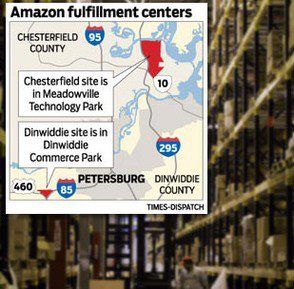 Opposition continues to build in Virginia regarding
Opposition continues to build in Virginia regarding 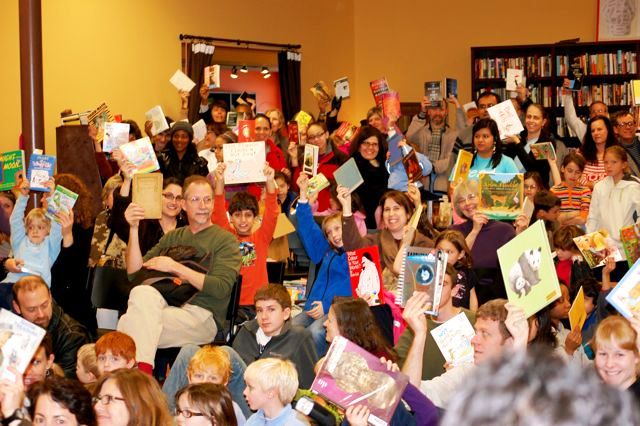
 Early this spring,
Early this spring,  The Hollywood Reporter featured a new poster and MTV's behind-the-scenes peek at the filming of
The Hollywood Reporter featured a new poster and MTV's behind-the-scenes peek at the filming of 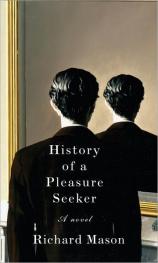 Piet Barol is the eponymous hero of Richard Mason's History of a Pleasure Seeker, a novel set in belle époque Amsterdam. From his French mother (now deceased), he learned charm and gentility; from his dour Dutch father, not much. The handsome, sexually adventurous Piet is eager to leave provincial Holland behind, for he knows that he is made for better things: he's well-educated, fluent in several languages and musically gifted, so he applies for a job as tutor to the young scion of one of the wealthiest families in Amsterdam.
Piet Barol is the eponymous hero of Richard Mason's History of a Pleasure Seeker, a novel set in belle époque Amsterdam. From his French mother (now deceased), he learned charm and gentility; from his dour Dutch father, not much. The handsome, sexually adventurous Piet is eager to leave provincial Holland behind, for he knows that he is made for better things: he's well-educated, fluent in several languages and musically gifted, so he applies for a job as tutor to the young scion of one of the wealthiest families in Amsterdam.